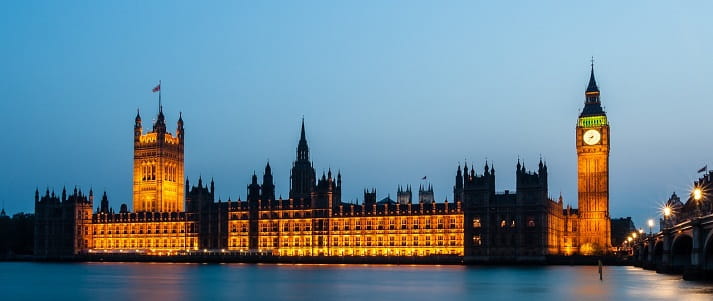Parliament debates petition to lower tuition fees to £3,000
It's one of the most controversial issues in British politics, and a petition has forced MPs to debate university funding in Parliament.

MPs have debated a petition calling for student tuition fees be decreased by almost 70% to £3,000 a year.
After collecting 164,166 signatures, the petition by far surpassed the 100,000 threshold that automatically entitles it to be debated in Parliament.
The campaign argued that an annual fee of £9,250 for university fees is “too high and the stress of being in debt is what puts individuals off applying for degrees”.
It also highlighted how, now that grants have been removed, university is particularly difficult for students who need extra financial support but can no longer receive it as they used to.
How did it all start?

The petition was originally launched in 2016, and closed in May this year.
Having been a prominent issue in the 2017 General Election, government ministers announced a review of student funding. In their manifestos, both Labour and the Green Party vowed to scrap tuition fees and reinstate maintenance grants.
- The Big Fat Guide to Student Finance 2018
- Check out our festive deals section to save money on Christmas
The removal of maintenance grants, which first came into effect in 2016, has led to claims that some students starting degrees this year will leave university with debts of £57,000.
What has been decided?

Monday’s debate will not directly change policy. It did, however, give MPs the chance to begin discussions on ones of the most important political issues in the UK today.
They also had the opportunity to discuss issues such as how much vice chancellors get paid. Dame Glynis Breakwell, VC at the University of Bath, has come under fire for her salary of £451,000, and since the debate has announced that she will soon step down.
The government’s official response to the petition stated:
Anyone with the ability to benefit from higher education should have the opportunity to do so.
All eligible students can apply for an upfront loan to meet the full cost of tuition fees.
Reactions to the debate

Some ministers argue that the current system, in which nobody has to pay fees up front and all debts are written off after 30 years, has not put poorer students off from going to university.
They point to the fact that there has been an increase in the proportion of students from poorer backgrounds going into higher education, up from 3.6% in 2009 to 19.5% in 2016. The level of support for university students has also more than doubled in the last eight years to £833.5 million.
That said, evidence shows that financial stress is one of the biggest worries for students at university, on a par with exams.
Moreover, a recent study has suggested that poorer students are still more likely to drop out of university, and that the 28% increase in students seeking counselling is likely linked to the rise in tuition fees.
The government, however, warns that lowering tuition fees could lead to the closure of some universities, and limits to be re-imposed on the number of students going into higher education.
So what’s going on with tuition fees now?

Student fees can be a bit mind-boggling, especially as the laws and rules surrounding them change so often.
Here’s a brief timeline of recent developments:
- In 2010, the Conservative-Lib Dem coalition approved plans to allow universities to increase fees to up to £9,000
- In 2016, the government announced the introduction of the Teaching Excellence Framework (TEF), which meant that from 2017, fees could increase each year in line with inflation
- In October 2017, the government responded to concerns about student debt by freezing tuition fees for a year, and increasing the repayment threshold from £21,000 a year to £25,000.
As well as the recent changes, new suggestions and discussions regularly crop up. An education charity has released a report which puts out the idea of a sliding-scale fees system, where the richer students pay higher fees, and the poorest pay nothing.
A think tank has also submitted plans to government urging for student loan interest to be scrapped, and to instead to increase the loan repayment period from 30 to 50 years.
Think you’ve grasped tuition fees? Nice one! Now check our guide to understanding student loan repayments.








